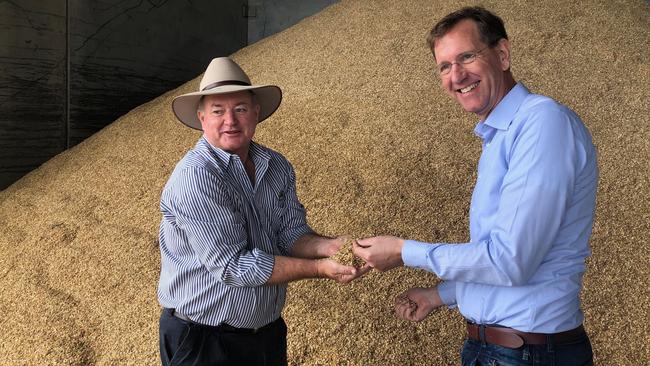Farmers well-placed for challenges
Australia has the ‘golden ticket’ to take the lead on solving future global food issues and to cash in on supply opportunities

Rabobank global chairman Wiebe Draijer says Australia has the “golden ticket” to take the lead on solving future global food issues and to cash in on supply opportunities.
Mr Draijer, visiting Sydney from The Netherlands to open the bank’s annual Farm2Fork summit, said if the food patterns of the more industrialised world were applied to the rest of the world, four planets would be needed to feed a future population.
“We need to significantly innovate the way we produce food, where we produce it and how we produce it. We also need to limit the waste in the supply chain and limit the environment footprint,” he said.
“All that needs to take place in the coming 30 years and Australia has both the arable land ticket and the infrastructure ticket to be a key player in solving those equations. Much of the new growth will take place in Asia, for which Australia is well positioned.”
Mr Draijer said Australia was in an ideal position to supply a bigger slice of the pie than other countries because while it had less than 1 per cent of the global population, it had 5 per cent of the arable land. He said Australia had the key to addressing the trends on both volume and feed patterns.
“With the increasing health focus in eating patterns of consumers globally, Australia, with the different types of pastures, has a huge opportunity to be a key player and innovator,” he said.
Global political tensions also offered Australia’s agricultural industry new opportunities. Mr Draijer said Brexit and the trade wars created potential new openings to the local sector.
He said Brexit was a bad lever in the global economy and disruptive for economic development. He said the impact of trade negotiations between the US and China were being felt globally.
“There are three or four real triggers for disruption that on the whole are very counter-productive,” he said. “There is an increasing number of mouths to feed in years to come and those that have a significant surplus in arable land are ideally positioned. So I would argue as an entrepreneur, as a banker and as a food and agriculture-oriented person, net-net it is a huge opportunity.
“I think Australia, if it is smart, and given the card it has with the potential for agricultural production and the increasing demand in the world, it is ideally positioned to navigate through those issues.”
The agriculture expert, who toured a farm in Queensland during his Australian visit, also referred to the extreme weather conditions the local sector was battling, from floods to drought.
Mr Draijer said the globe was facing more frequent and severe weather patterns.
“(Rabobank is) increasingly seeing that you need to take those risks into account when you prepare a client for the coming years,” he said. “Farmers have to factor in that risk into their financial planning.”
Mr Draijer said the bank had seen in different parts of the world that clients without insurance were vulnerable and said farmers had to calculate weather impacts into the buffer that they took on and they had to also apply additional insurance where needed.



To join the conversation, please log in. Don't have an account? Register
Join the conversation, you are commenting as Logout